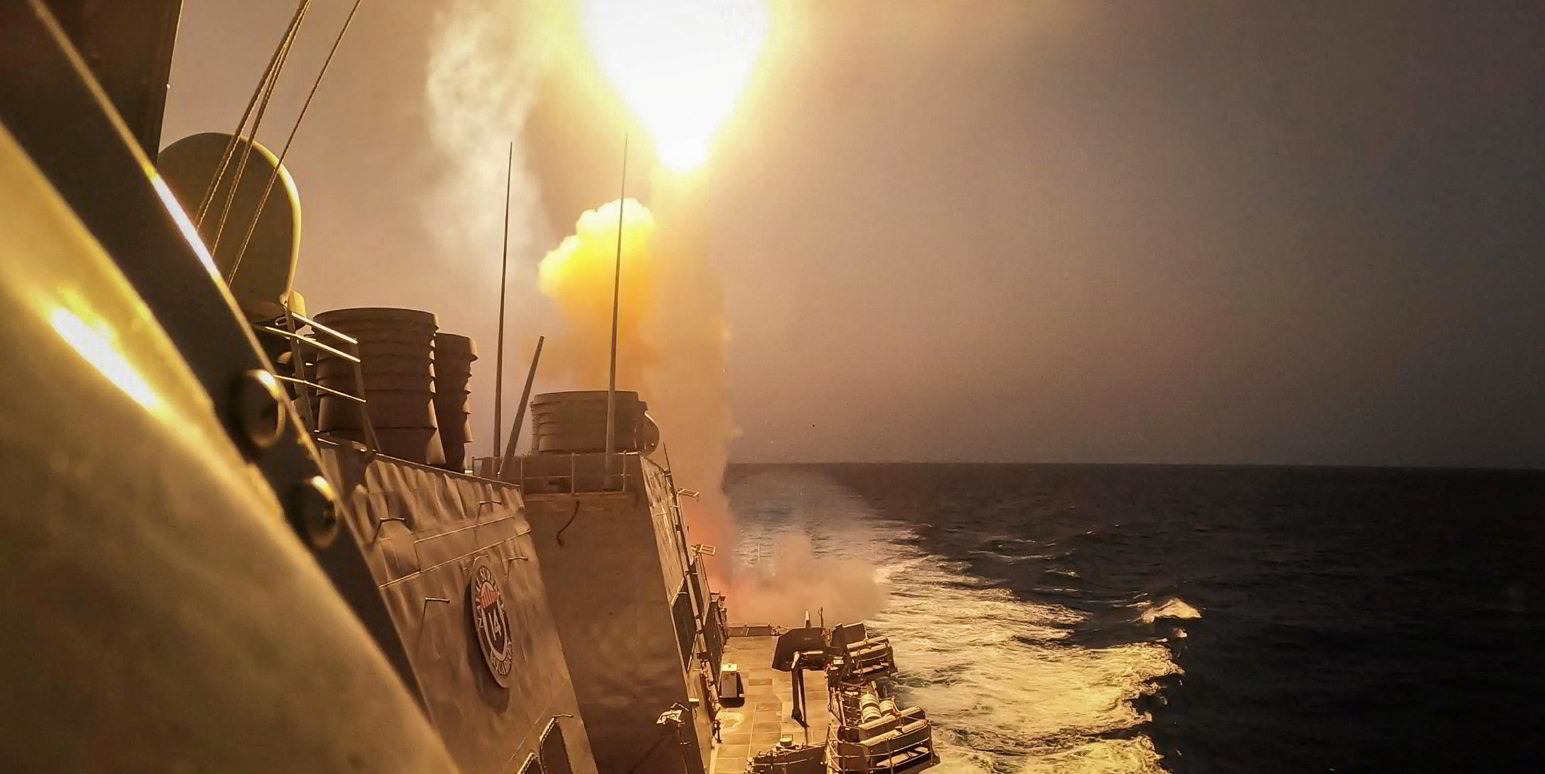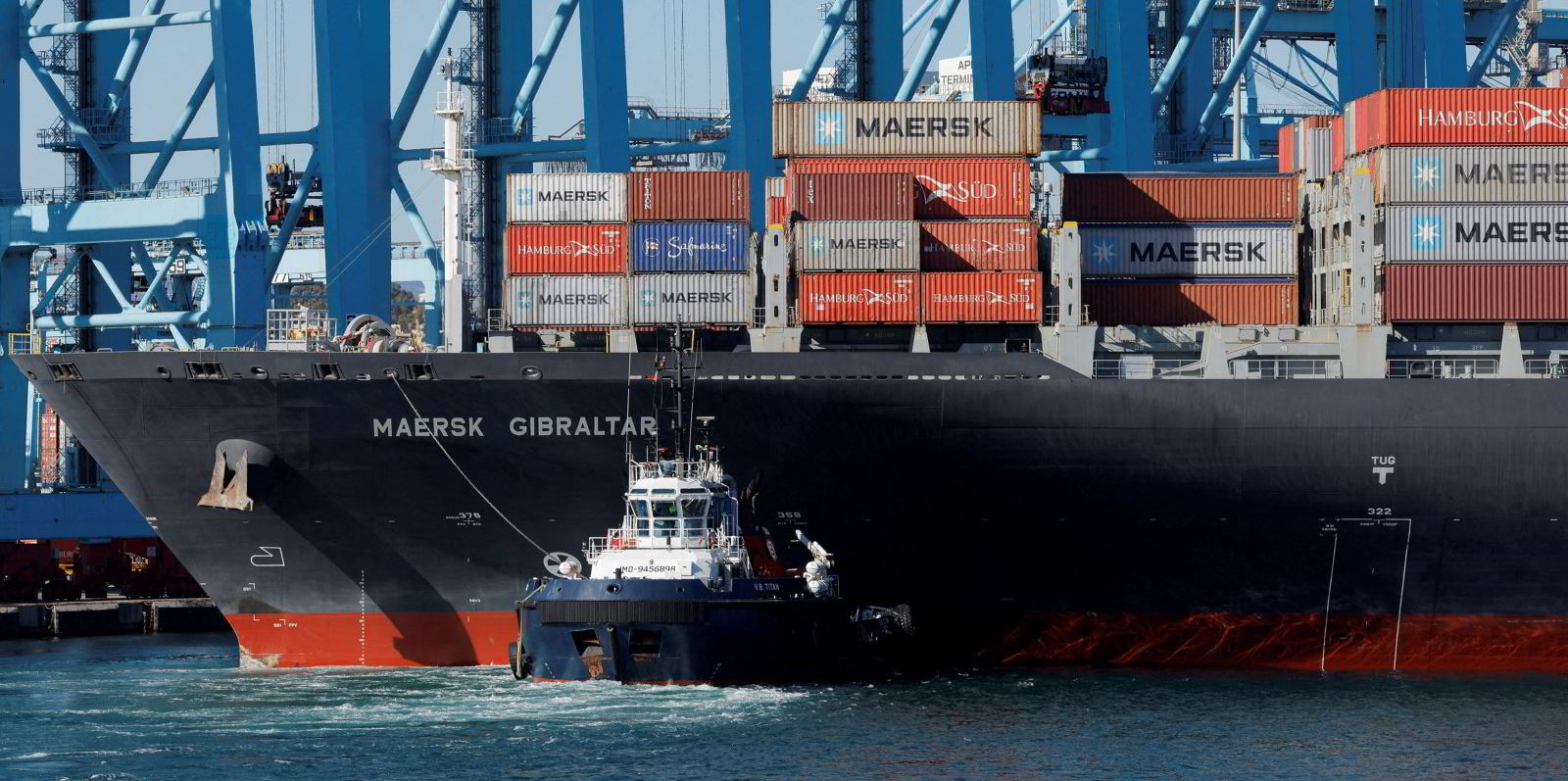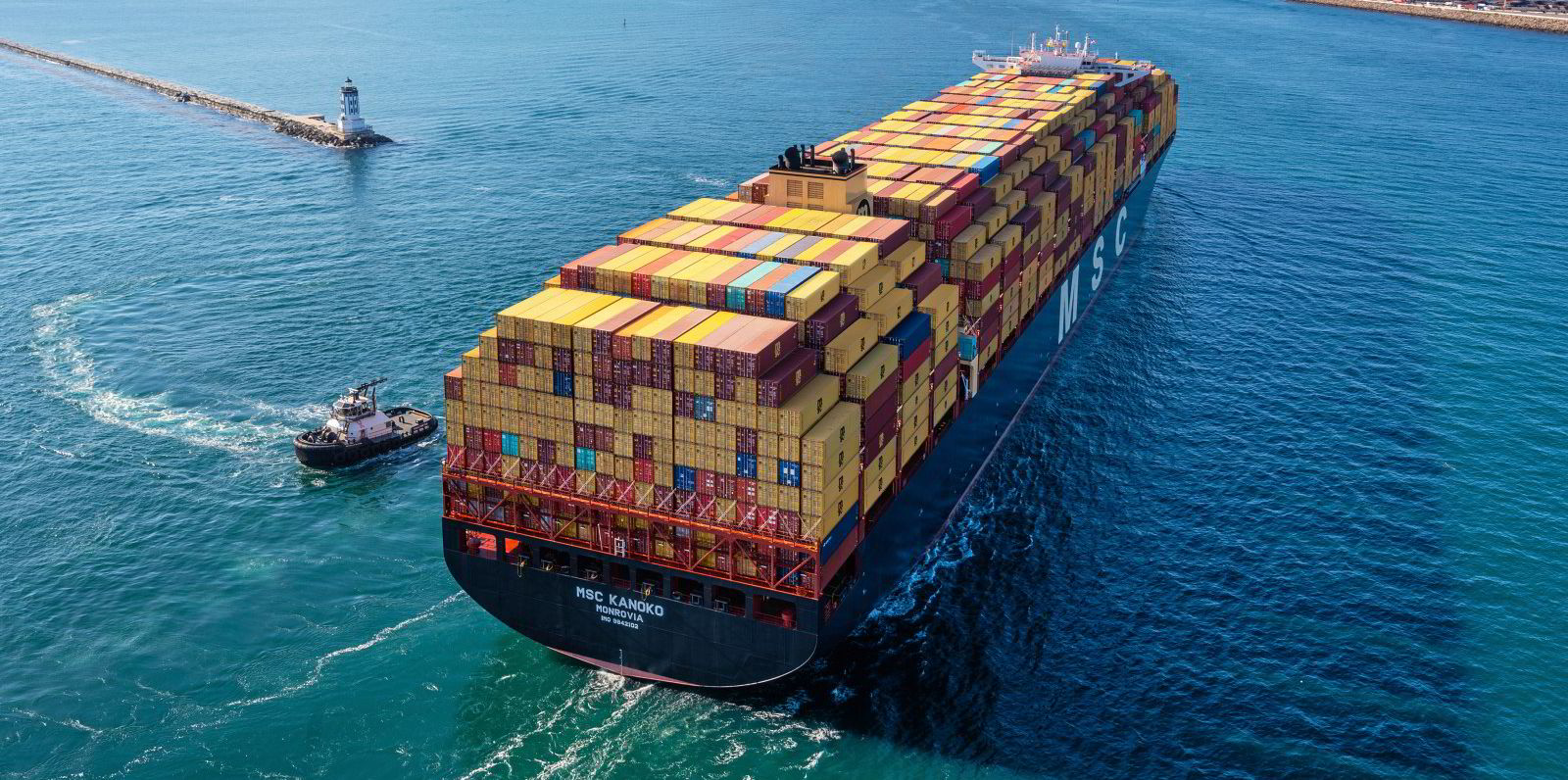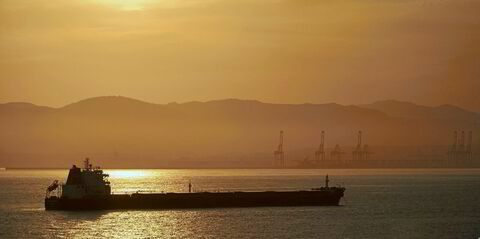Shipping giants AP Moller-Maersk and Hapag-Lloyd are to pause all container ship traffic through the Red Sea because of a surge in missile and drone attacks.
Maersk said that all of its vessels due to pass through the Bab al-Mandab Strait would pause their journeys until further notice. Hapag-Lloyd said it would stop all container ship traffic through the Red Sea until Monday when it would reassess the situation.
The announcements will send a shockwave through the rest of the container market as shipping leaders mull their next steps after near-daily attacks this week.
The changes threaten to add considerable distances by detouring around southern Africa and reducing available tonnage.
The decisions by the two major players followed a near miss in a missile attack blamed on the Iran-backed Houthi regime in Yemen that targeted the 10,100-teu, Maersk-operated container ship Maersk Gibraltar (built 2016).
According to UK Marine Trade Operation, an explosion was sighted 50 metres off the vessel’s port quarter.
The Houthis on Friday struck a Hapag-Lloyd container ship, the 15,000-teu Al Jasrah (built 2016), while sailing close to the coast of Yemen. No crew member was injured, the company said.
Also on Friday, the MSC Mediterranean Shipping Company-operated, 2,546-teu MSC Palatium III (built 2006) was hit, with the vessel’s master reporting an explosion on board that resulted in a fire that was extinguished. Separately, the 12,199-teu MSC Alanya (built 2021) was asked to change course by “Yemeni authorities”, as the Houthis consider themselves.
“We are deeply concerned about the highly escalated security situation in the southern Red Sea and Gulf of Aden,” Maersk said in a statement.
“The recent attacks on commercial vessels in the area are alarming and pose a significant threat to the safety and security of seafarers.
“Following the near-miss incident involving Maersk Gibraltar yesterday and yet another attack on a container vessel today, we have instructed all Maersk vessels in the area bound to pass through the Bab al-Mandab Strait to pause their journey until further notice.
Crew safety
“Ensuring the safety of our employees is of the utmost importance and our number one priority in handling this challenging situation. We continue to closely monitor the situation retrieving all available intelligence on the security situation in the area.”
The company said on Thursday that all possible security measures were being taken to ensure that seafarers were being removed from harm’s way.
The International Chamber of Shipping said earlier on Friday that some companies had already re-routed around the Cape of Good Hope to avoid Houthi aggression.

Bimco head of maritime safety and security Jakob Larsen said that ships with ownership ties to Israelis or those heading to Israeli ports were still the most likely targets.
“Is the risk very much higher for all ships? I don’t think so,” said Larsen. “There’s of course the residual risk of mistaken identity or wrong information. The Houthis can base their attacks on wrong information or incomplete information.”
The Red Sea is a crucial waterway linking Europe and Asia with 12% of global trade passing through the Red Sea.
The ICS urged governments on Friday to send more war vessels to the afflicted area, amid increasing talk that the US and its allies might step up their naval presence in the region to protect the key route.
US and French frigates and destroyers have already assisted merchant vessels in defying Yemeni rebel demands to turn around and leave the area.
However, nevertheless, the Houthis have been escalating the attacks they are carrying out in support of the Palestinian group Hamas in its war against Israel, firing missiles on several ships this week.
The ICS expressed its gratitude for the West’s naval operations thus far but said it is not enough.
“[The] ICS lauds the actions and presence of naval forces so far in intervening against the aggressors and hopes and expects further commitments of the same nature in the very near future.
“The full maritime security architecture in the region should be brought to bear to end these attacks and protect our seafarers and merchant shipping.”
Large market players are said to be actively trying to opt out of trades, evaluating the viability of time-charter deals that would expose ships to danger.
“States with influence in the region should, as a matter of urgency, work to stop the actions of the Houthis in attacking seafarers and merchant ships, and de-escalate what is now an extremely serious threat to international trade,” the ICS said;
19 November: The car carrier Galaxy Leader is hijacked in the Red Sea.
24 November: Drones attack the container ship CMA CGM Symi in the Indian Ocean.
26 November: The tanker Central Park was briefly boarded in the Gulf of Aden. Would-be hijackers were captured by the US Navy after attempting an escape. Ballistic missiles were fired at the ship and the USS Mason in response.
3 December: The Unity Explorer, container ship Number 9 and Sophie II were targeted in drone and missile attacks.
12 December: The J Ludwig Mowinckels Rederi-controlled Strinda was hit by an anti-ship missile in the Red Sea.
13 December: An attempted boarding of the tanker Ardmore Encounter was followed by a failed missile strike.
14 December: The Maersk Gibraltar was unsuccessfully targeted by an anti-ship missile. A Navibulgar bulker is boarded in the Gulf of Aden.





